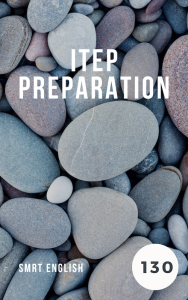Smrt Curriculum
Smrt English is a blended learning curriculum developed by teachers at the Canadian College of English Language in Vancouver.
English for Adults
English One
A foundational English course for true beginners focusing on essential classroom language, basic introductions, and daily routines. Students learn the English alphabet, numbers, personal pronouns, and basic present tense verbs. Topics include introducing yourself, talking about family, describing your neighborhood, and discussing occupations. This course establishes core vocabulary for nationalities, family members, places in the city, and basic directions.
English Two
Building on basic foundations, this course introduces time expressions, shopping vocabulary, and basic past tense structures. Students learn to tell time, discuss daily schedules, and describe ongoing activities using present continuous tense. The course expands into past tense with regular and irregular verbs, allowing students to talk about past experiences and historical events. Topics include daily routines, shopping, activities, and basic biographical information.
English Three
An introductory course focusing on essential social interaction and daily life communication. Students learn to introduce themselves, discuss family relationships, and talk about occupations using present simple and continuous tenses. The course covers fundamental grammar structures including 'be' verbs, possessives, and quantifiers. Topics expand to include weather, home life, and shopping, with emphasis on countable/uncountable nouns and basic food vocabulary. Students develop skills to describe their immediate environment and daily activities.
English Four
Building on basic communication skills, this course introduces more complex language structures for describing locations, making comparisons, and discussing past and future events. Students learn to navigate around town, describe people and objects using adjectives and adverbs, and express basic needs using modal verbs like 'can' and 'could'. The course introduces future tenses with 'going to', 'will', and present continuous for future plans. Students develop ability to express preferences, obligations, and desires using structures like 'need to', 'have to', and 'would like'.
English Five
An intermediate course that deepens students' understanding of present and past tenses while introducing passive voice constructions. Students enhance their social interaction skills through greetings, apologies, and giving directions. The course covers essential grammar including pronouns, articles, and quantifiers in practical contexts. Topics include daily routines, past events, city navigation, shopping experiences, and discussions about animals. Students develop more sophisticated writing skills with attention to punctuation and sentence structure.
English Six
This intermediate course introduces more complex future tenses, modal verbs, and verb patterns while developing critical thinking skills. Students learn to discuss goals, educational experiences, and technology using comparative structures and present perfect tense. The course introduces conditional sentences and expressions of hope and wish, enabling students to discuss hypothetical situations. Topics include future planning, school life, hobbies, technology comparisons, and life experiences. Writing skills focus on complex sentence structures and common error correction.
English Seven
An upper-intermediate course focusing on sophisticated language structures and practical applications. Students master present and past passive voice, perfect tenses, and complex verb patterns. Topics include health and fitness, housing markets, natural disasters, literature, fashion, and sports. The course emphasizes development of paragraph writing skills with topic sentences, supporting details, and proper transitions. Students engage in detailed discussions requiring critical analysis and learn to express necessity, give advice, and make requests in various social and professional contexts.
English Eight
This upper-intermediate course introduces advanced grammar structures including present perfect with duration, participial adjectives, and conditional sentences. Students explore contemporary topics such as art, environmental issues, weather phenomena, travel, celebrities, and space exploration. The course develops sophisticated writing skills focusing on complex sentences, linking words, and proper article usage. Special attention is given to reported speech, phrasal verbs, and indirect questions. Students learn to express certainty, make assumptions, and engage in academic discussions.
English Nine
An advanced course focusing on complex social and professional communication. Students master passive voice constructions, sophisticated question forms, and conditional statements while exploring topics such as modern family dynamics, career preparation, and cultural celebrations. The course develops critical analysis skills through discussions of current events, media literacy, and civic engagement. Writing skills emphasize structured paragraphs, complex sentence formation, and formal correspondence. Students learn to navigate professional situations, discuss social issues, and express detailed opinions.
English Ten
This advanced course develops sophisticated language skills for academic and professional contexts. Students master quantifiers, complex verb patterns, noun and adjective clauses, and reported speech. Topics include consumer behavior, public safety, health and wellness, global citizenship, time management, and urban mobility. The course emphasizes cohesive writing with proper paragraph linking, parallel structure, and concession. Students develop skills for group discussions, professional correspondence, and detailed explanations of complex topics. Special attention is given to formal writing tasks including reviews, reports, and grant applications.
English Eleven
A high-advanced course focusing on sophisticated academic and professional communication. Students master complex comparative structures, advanced future forms, and nuanced passive voice constructions while exploring interpersonal relationships, academic preparation, and urban development. The course emphasizes critical analysis of societal issues including cultural preservation and environmental concerns. Writing skills focus on structured academic compositions, detailed reviews, and formal correspondence. Students develop abilities to participate effectively in academic discussions and deliver persuasive presentations.
English Twelve
This high-advanced course prepares students for university-level academic work and professional environments. Students master modal expressions, advanced conditional structures, and complex verb patterns while exploring social movements, technology impact, and mental wellness. The course emphasizes sophisticated writing skills including thesis development, cohesive arguments, and proper academic citation. Special attention is given to critical analysis of contemporary issues, formal academic writing, and professional presentation skills. Students learn to engage with complex topics through research, debate, and scholarly discussion.
English for Youth
English 110 Youth
The Beginner level is ideal for students with basic English skills. High interest topics engage and strengthen reading skills. Students are introduced to basic grammar skills. Students start to develop better speaking and listening skills. Students are introduced to new vocabulary and writing skills.
English 115 Youth
The Pre-Intermediate level is ideal for students with adequate English levels. This level is a continuation of more basic grammar skills. Students begin to expand topic vocabulary, reading and writing skills. Engaging unit projects encourage creative ways to communicate in English.
English 120 Youth
The Intermediate level is ideal for students who wish to expand their English skills. In addition, students further develop and practice grammar skills for academic writing. Students begin to develop academic vocabulary and writing skills through unit presentations and research projects.
English 125 Youth
The Upper Intermediate level is ideal for students with high level English fluency. Students focus on increased communication both in written and oral form with high interest topics. Grammar structures and vocabulary become more abstract and take multiple meanings.
English 130 Youth
The Advanced level is ideal for students who are approaching English fluency. Students begin to polish and perfect English in all areas. There is a strong focus on the production of clear, well-structured texts that exhibit more technical and academic vocabulary.
English for Kids
English 110 Kids
The Beginner level is ideal for students with limited English skills. Students begin developing basic communication of ideas and feelings. Engaging thematic topics introduce the fundamentals for basic reading, grammar, vocabulary and writing tasks.
English 115 Kids
The Elementary level is ideal for students with emerging English skills. At this level, students develop skills learned from Kids 110. This level is a continuation of more basic grammar skills and commonly-used topic vocabulary. Students begin to expand reading and writing skills.
English 120 Kids
The Pre-intermediate level is ideal for students with basic English skills who still need repetition. There is a strong focus on developing independent reading and increased comprehension. New vocabulary words are learned using online tools for richer understanding.
English 125 Kids
The Intermediate level is ideal for students who are trying to develop a better command of English. Students are introduced to an increase in challenging readings, vocabulary and grammar levels. There is a strong focus on sentence variety and the expansion of oral communication.
English 130 Kids
The Advanced level is ideal for students with intermediate fluency and communication skills. Students are introduced to more complex grammar structures and vocabulary. Students begin to be exposed to more complex texts to further reading skills and comprehension.
English for Children
Early Childhood Education One
The Smrt Early Childhood course introduces very young learners to basic English in a way that is fun and educational. Children build a bank of vocabulary and phrases, and a phonics foundation through ABCs and number practice.
Elementary English One
In the Elementary English One course we’re moving onto more complex phonics rules, longer reading books, more vocabulary, and longer dialogues to practice our communication skills. We’re focusing on emerging reading at this level.
Elementary English Two
The Elementary English Two course completes the phonics journey and begins with some simple grammar structures. At this level we’re beginning to learn the process of writing, too! We’re working on more complex dialogues, as well as longer reading books for this stage of learning.
Academics
Intro to College Communications
Introduction to College Communications provides instruction and practice in college and workplace communication skills, with an emphasis on the development of strategies to organize and express ideas in a clear and professional manner. Emails, memos, letters, short reports, and essays are used to develop effective writing skills suitable to a variety of audiences. Course work also provides opportunities for the development of students’ grammar, research, analytical, reading and listening skills. American Psychological Association (APA) format and documentation is introduced.
Business Communication
Business Communication is an immersive course focusing on essential communication skills for today's business world. Covering topics like effective communication, nonverbal cues, professional messaging, writing techniques, presentations, and conflict resolution, this course offers a blend of theory and practice. It's designed to equip students with the tools needed to communicate clearly and professionally in various business contexts.
Intercultural Communication
Intercultural Communication is a multifaceted course designed to delve into the complex relationship between culture and communication. From understanding the basic concepts of culture and its dynamic nature to exploring cultural value orientations and their integration, the course offers insights into nonverbal communication forms, stereotypes, language differences, and cultural competence. Practical modules focus on workplace communication skills, intercultural leadership, and various global management styles. Whether you're navigating multicultural environments or aiming to enhance your global leadership capabilities, this course provides the essential tools and perspectives.
English for STEM 140
STEM is a term that refers to the academic disciplines of Science, Technology, Engineering and Mathematics. Combined study of these elements improves competitiveness in the advancement of science and technology.
English for Special Purposes
English for Aviation 120
This course is designed to provide students with the English language skills they need to succeed in a career within the aviation industry.
English for Business Administration 130
Develop language skills while focusing on concepts from the world of academic business administration. Improve your academic writing skills with activities related to argumentative and report-style writing.
English for Computing & Information Systems 130
Develop language skills while focusing on concepts from the world of computing and information systems. Improve your academic writing skills with activities related to opinion-based essays.
English for Automotive 100 Spanish
An introductory course for Spanish speaking students new to English with a focus on Automotive concepts and vocabulary.
English for Automotive 110
Develop greater skills in listening and speaking for basic communication in the automotive industry. Introduction of basic grammar, expand reading and writing skills, practice and acquire target automotive vocabulary. Basic computer commands practiced.
English for Automotive 115
Listening, speaking, reading and writing skills to function satisfactorily in most real-life situations related to the automotive industry.
English for Automotive 120
Refine skills needed in conversations beyond survival needs, and develop greater automotive English. Function independently in most familiar situations and use appropriate language in routine social situations.
English for Health Sciences 125
Expand and explore your English skills in a curriculum designed for students interested in entering the medical field.
Professional Development for Teachers 130
Professional Development for Teachers, by Trent-ESL EAP faculty, utilizes a “Content & Language Integrated Learning” framework. The content comes from themes related to ESL teaching, and the language instruction encompasses the four skills plus grammar and vocabulary.
English for Exam Preparation
course-title-257
course-desc-257
IELTS Preparation 125
The course is designed to give students thorough knowledge of the IELTS test format and opportunities to develop the skills required to improve on tests.
course-title-519
course-desc-519
TOEFL ITP Preparation 125
This course is designed to provide students with the skills and knowledge they need to succeed on the TOEFL ITP exam, which is designed to judge their placement, progress, or general proficiency in an academic university situation.
Bilingual Bridging Courses
English 100 Arabic
An introductory course for Arabic speaking students new to English.
English 100 Chinese
An introductory course for Chinese speaking students new to English.
English 100 Spanish
An introductory course for Spanish speaking students new to English.
English 100 Indonesian
An introductory course for Indonesian speaking students new to English.
English 100 Portuguese
An introductory course for Portuguese speaking students new to English.
Electives
Listening & Speaking 110
You will learn the basic pronunciation of a wide range of sounds in the English language by listening, speaking and working in small groups.
Reading Comprehension 110
An introductory Reading Comprehension elective for students new to English.
American Slang & Idioms 115/120
Build your fluency with American speakers by learning slang, idioms and the most common phrasal verbs in English.
Writing 115/120
An intermediate writing course that focuses on strategies and skills for writing a variety of paragraphs.
Listening & Speaking 115/120
This course focuses on understanding rules and patterns in pronunciation, developing skills for formal and casual situations, and preparing for speaking events.
English for Hospitality Service 120
EHS is designed for students wishing to acquire knowledge of the functional English required for employment in a café, bar or restaurant.
Grammar 120
This is a back-to-basics grammar course for students who want to strengthen their understanding of English grammar. The course focuses on reviewing the basics of grammar, from tenses to parts of speech, and getting students to use the grammar in spoken and written English.
Journalism & Writing
Journalism requires students to consume news from various sources and write short articles once or twice a week.
Business English 125
This elective combines Business English topics and vocabulary with Career Preparation. It is ideal for those preparing to enter the workforce at home or abroad.
Current Events 125
Current Events is designed to improve a student’s speaking, listening, reading, and vocabulary through an active intake and discussion of world current events.
English for Economics 125
This course looks at basic economic and financial topics in a simple yet interesting manner.
English for Hospitality & Tourism 125
This course is an introduction to the vocabulary, careers, and industries in Tourism and Hospitality.
course-title-522
course-desc-522
Movie English 125
This is a vocabulary and listening course that uses movies to help you learn the meaning, use and pronunciation of vocabulary.
English Vocabulary 125
This course explores a wide range of interesting, topical themes to develop essential vocabulary for academic as well as everyday use.
American Slang & Idioms 125/130
This course uses grammar and advanced vocabulary to further understand common slang and idioms used in North America.
Academic Writing 125/130
This course will get you ready for the difficult challenges of writing at an academic level and help you have success in college.
Listening and Speaking 125/130
High level discussion, listening and public speaking are the focus of this course that utilizes different forms of media to learn about exciting topics from around the world.
Reading Comprehension 125/130
Techniques for comprehending literature and academic readings are the focus of this course. Aspects of fiction, nonfiction, and poetry are also explored.
































































